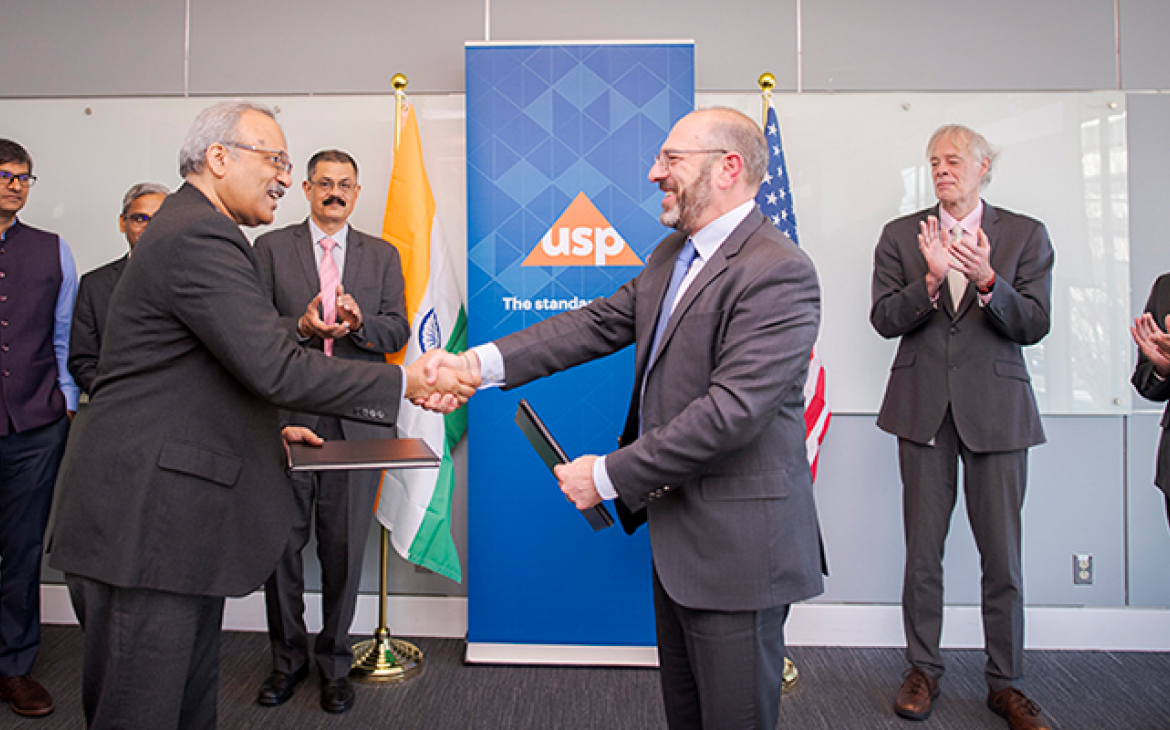Despite huge challenges in the African pharmaceutical landscape, a generation of formidable, female leaders is advancing global health in the continent through their valuable contributions in pharmaceutical science.
On November 8th, USP’s Center for Pharmaceutical Advancement and Training (CePAT) hosted the CePAT Honors 2014 Gala in Accra Ghana, to acknowledge and celebrate the unique contributions of African female luminaries, who continually apply an elevated level of excellence to advancing medicines regulation and quality assurance in Africa.
Here are some highlights from the celebrations.
Among the award recipients was Ms. Esnart Mwape, Director General of the Zambia Medicines Regulatory Authority. Back in October, we had the opportunity to sit down with Ms. Mwape when she attended the International Training Program (ITP) held at USP’s Rockville campus. Our discussion focused on the problems facing the pharmaceutical industry in Zambia and how the regulatory agency, which she leads, is responding.
Describe your work as the Director General of Zambia Medicines Regulatory Authority.
I am responsible for the day-to-day running of the Authority. We regulate medicines and related substances, and that entails licensing, inspections, registrations of medicines and conducting post-marketing surveillance to ensure that all medicines coming into the country, and those that are manufactured in Zambia comply with our standards. Hence my job is to ensure that the entire institution is working towards implementing the Medicines and Allied Substances Act, which established the Zambia Medicines Regulatory Authority. The Authority has four directorates responsible for:
- Medicines registration;
- Quality control services;
- Inspections; and
- Corporate services.
What is the relationship between USP and your agency?
We’ve worked with USP in the past and I’m glad to see that we are members of NOMCoL (Networks of Official Medicines Control Laboratories) in Africa.
In the past two years we’ve had the privilege of working under the TAP (Technical Assistance Program) through which we obtained access to reference standards and free reference materials provided by USP – this has helped us in the running of our laboratory. As you know, reference standards are expensive and we have limited resources. Hence the opportunity to work with USP in this capacity has helped us to leverage our finances and meet our demands.
What are some of the key challenges your agency is facing regarding the quality of medicines?
The Authority, which is almost ten years now, is still in its infancy. Our systems are not well developed and hence we are facing challenges in enforcing the law.
Zambia is surrounded by eight countries and this creates a problem in controlling the products that are coming into the country and ending up on our markets. Our hope is that through our partnership with USP, we can help build capacity for the Regulatory Authority in terms of better equipping our registration offices and the inspectors carrying out the work.
We also hope that through collaboration with other member states around us, we can develop common approaches that would help ensure that our people are getting access to quality assured medicinal products – it’s not easy, the challenge is there.
Right now there’s a lot of talk about counterfeit products and we don’t yet know the extent of the problem in Zambia or around us. It’s a huge challenge that we have to deal with since we have a lot of products coming in from all over the world especially China, India, Europe, and others. The Authority needs to reposition itself in such a manner that it takes charge of the market.
How does your agency’s collaboration with USP, including the ITP training you’re attending, help to solve some of these problems?
First and foremost it’s been great to have had this opportunity to come here and attend the ITP program because I had a different perspective altogether about USP. Now I’m going back well educated and will be able to convey the right information to my colleagues back home.
Initially, we thought that USP is in fact part of government, and we knew the organization only in terms of reference standards and reference materials. We didn’t really understand the background work that is taking place here. Coming here has provided me the opportunity to understand USP better and to exploit and leverage available opportunities, through which we can enhance our capabilities back home.
It’s also been great to meet with other regulators and people working in reference laboratories in other countries and to understand that the challenges we’re facing back home are not unique to Zambia. There are opportunities out there that we can exploit and utilize to help us better regulate the medicines that are coming into Zambia and enhance corporation and coordination among the member states.
What has been the highlight of your visit?
I’m impressed with the laboratories and the expertise within USP – that has been amazing. I hope that Zambia will learn from that expertise in order to enhance our infrastructure development and our human resource capacity development.
If you enjoyed this article, you might be interested in similar stories from other participants of our global exchange programs.
Disclaimer: The views expressed in this interview are those of Ms. Mwape, and not those of USP.


